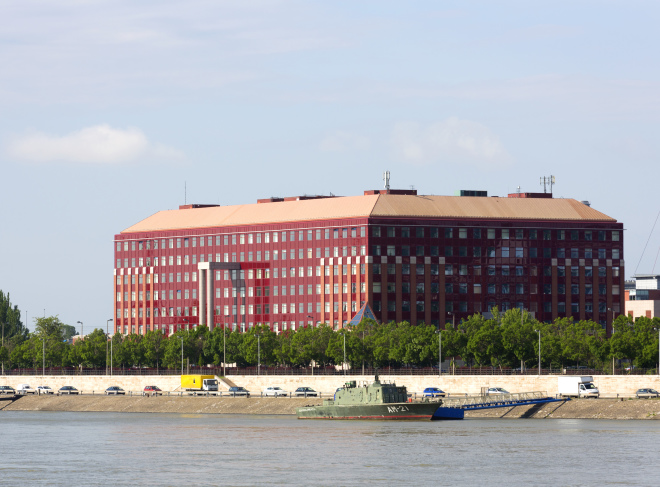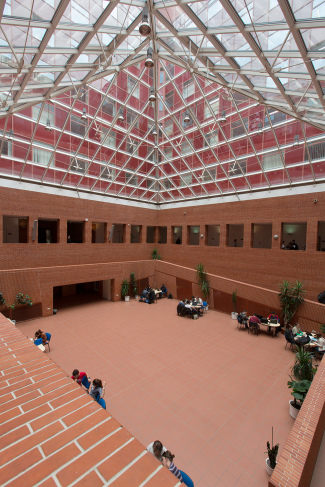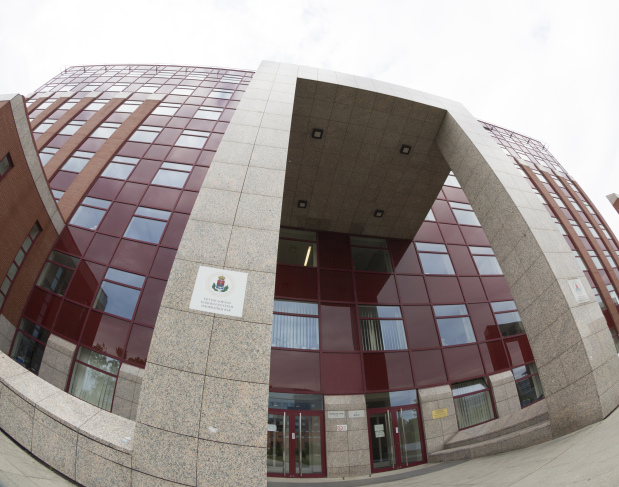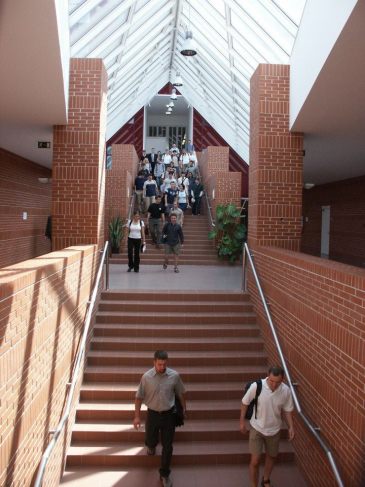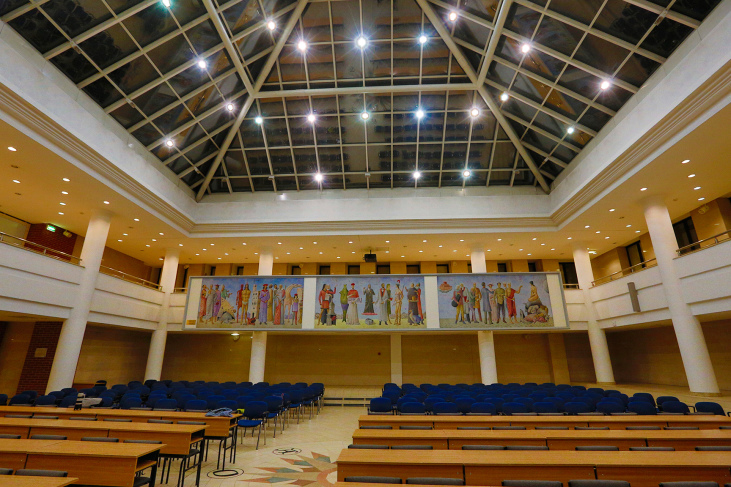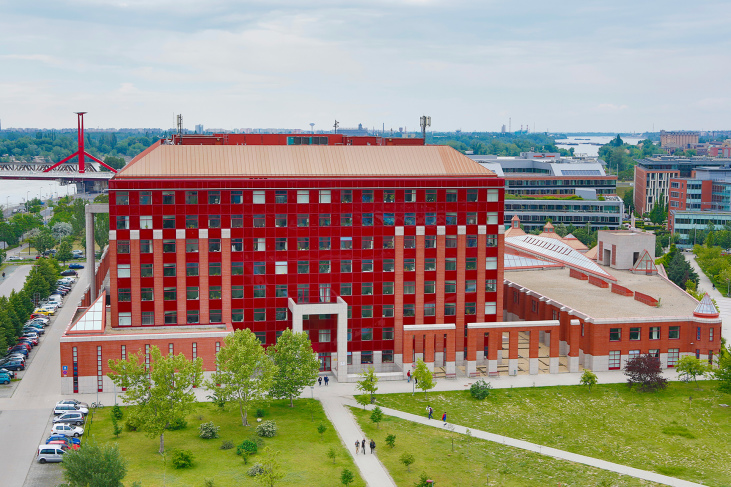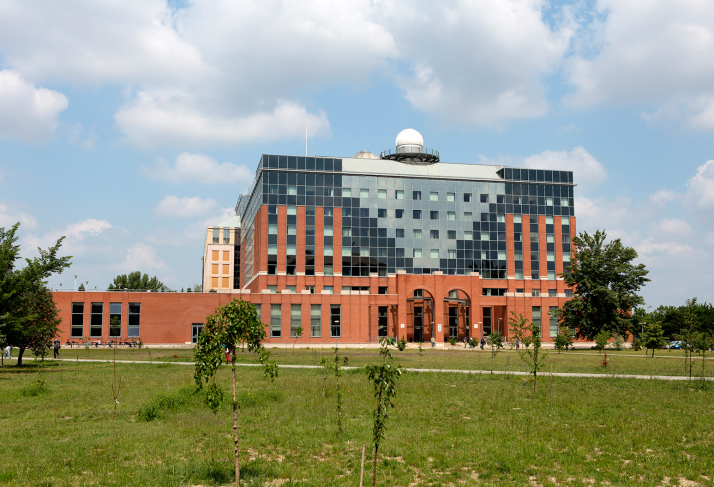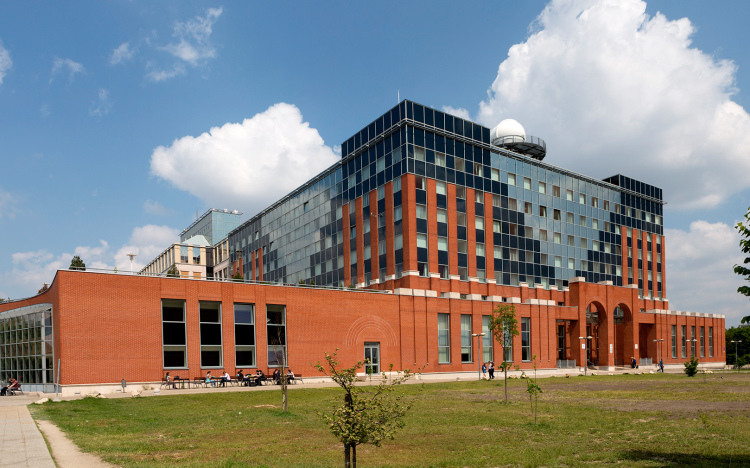Ethnic and Minority Policy MA

Mexico
Ethnic and Minority Policy MA
Ethnic and Minority Policy Expert
Degree program
Master
OH-FHF/138-4/2011.
English
4 semesters (2 years)
120
5
33
The goal of this programme is to educate professionals who deal with minority issues and diversity in the region with regard to the integration process of Central and Eastern European countries, the Balkans and the Mediterranean region into the international community. With their gained knowledge in the fields of political science, law, sociology, anthropology, history and social policy they will be able to carry out decision-making, controlling, organizing and expert tasks at local governments, media organizations etc. independently or in teamwork. The graduates have gained suitable theoretical and practical knowledge, interdisciplinary tasks and an international outlook in reference to minority politics. They are prepared to follow their studies on doctoral level.
This programme is recommended to applicants who wish to deal with minority issues and ethnic diversity.
This programme enables students to become trained professionals who have the insight and expertise to identify the main political, social and psychological reasons behind tensions and discriminations and who are also equipped with the skills and techniques to handle and moderate these conflicts.
The modern principle of multiculturalism, protection of minority rights, equal opportunities, anti-discrimination, and new challenges of inter-cultural integration of modern societies request more and more academics who intend to carry out research or teach about ethnic diversity and inter-ethnic relations. In post-industrial welfare societies there is a growing need for policy makers or expert advisors in issues and conflicts between regions, nations, ethnic groups, minorities, and majorities in Hungary or various parts of Europe. There is a considerable need for these types of professionals today, and this demand in the future will even increase as the historical legacy of Eastern and Central Europe, the renaissance of the national spirit, the intense immigration, and frequent ethnic and minority conflicts make the task of managing and reducing ethnic tensions more and more important. We expect that our graduates can find jobs in the different public or private agencies like in public (governmental) organizations and the minority self-governments, in public education, in research institutes, in the media, in civil organizations and NGOs, and in all such programmes and projects that aims to promote the successful social and cultural integration of minorities into the dominant society.
In the age of global migration processes and inter-ethnic conflicts fuelled by an increasing level of nationalism, ethnic and minority experts are more than simply needed in various fields of studies and work. Both governmental and non-governmental offices and organizations dealing with ethnic or other kinds of minorities, migrants, and refugees provide our students with possible future career possibilities.
Besides these institutes, local offices of different international organizations also employ experts on ethnic and minority issues. We expect that our graduates can find jobs in different public or private agencies like in public (governmental) organizations and the minority self-governments, in public education, in research institutes, in the media, in civil organizations and NGOs, and in all such programmes and projects that aim to promote the successful social and cultural integration of minorities into the dominant society.
- Project managers
- Policy makers
- Researchers
- Field coordinators
1300 EUR
3500 EUR; For February intake: 3000 EUR
For February intake: EUR 50 (non-refundable) For September intake: EUR 50 (non-refundable) between 01/10/2024-15/11/2024______ EUR 100 (non-refundable) between 20/11/2024-30/04/2025______ EUR 180 (non-refundable) between 05/05/2024-31/05/2025
For February intake: EUR 50 (non-refundable) For September intake: EUR 50 (non-refundable) between 01/10/2024-15/11/2024______ EUR 100 (non-refundable) between 20/11/2024-30/04/2025______ EUR 180 (non-refundable) between 05/05/2024-31/05/2025
3500 EUR; For February intake: 3000 EUR
For February intake: EUR 50 (non-refundable) For September intake: EUR 50 (non-refundable) between 01/10/2024-15/11/2024______ EUR 100 (non-refundable) between 20/11/2024-30/04/2025______ EUR 180 (non-refundable) between 05/05/2024-31/05/2025
Yes
01, Sep, 2025
31, May, 2025
Yes
15, Nov, 2024
Entry requirements
BA/BSc degree in Social Studies, Sociology, Social Work, Political Science, Cultural Anthropology, Social Pedagogy. In case of other bachelor degrees: individual consideration.
If the BA degree does not meet all the necessary requirements, the applicant may be required to complete additional credits in the relevant fields during their first year of study to fulfil these requirements upon acceptance.
Language requirements
Certification of English knowledge (both written and oral): B2
IELTS Score: 5.5
TOEFL IBT Band: 46-59
Cambridge English Scale Score: 162
Further comments:
Hungarian state accredited language certificate is required in one of the following languages: English, Bulgarian, Greek, Croatian, Polish, German, Armenian, Roma, Romanian, Ruthenian, Serbian, Slovak, Slovenian, Ukrainian language certificate.
Or an equivalent diploma (university degree or secondary school certificate about studies conducted in the given language).
If the applicant can prove that they completed their former education entirely in English by submitting a notarized attestation and a detailed academic transcript, no further proof of language knowledge will be required throughout the admission process.
The applicant’s English knowledge will also be assessed during the admission interview.
Any letter of acceptance issued by the Faculty of Social Sciences is based on the verified fact that the applicant’s command of English has been assessed; therefore, they are considered eligible to pursue their studies at the institution.
| Document | Comment |
|---|---|
| Bachelor-level degree | |
| Transcript of records | |
| Copy of the main pages of the passport (needs to be valid) | |
| Motivation letter | The general guidelines and expectations for the letter are: the applicants introducing themselves, their motivation, interests and goals with the programme. The length of the motivation letter is between 1500 and 4000 characters |
| Copy of application fee transfer | needs to be valid |
| Language certificate | required |
The application starts at the online application system. Students need to register in the system, fill in the online application form, upload the required documents and follow the instructions during the application process.
Students who hold Hungarian citizenship and/or dual citizenship, must apply through felvi.hu Please note that if an application is submitted not according to the aforementioned, it will be rejected.
Procedure of the entrance examination:
The application deadline refers to the final submission of the complete application package through the online application system.
For the September intake, there are three application periods:
- Early Bird Period: October 1, 2024, to November 15, 2024, 23:59 (CET)
- Regular Period: November 20, 2024, to April 30, 2025, 23:59 (CET)
- Last Call Period: May 5, 2025, to May 31, 2025, 23:59 (CET)
These distinct periods allow applicants the flexibility to submit their applications at their convenience. All applicants within each period have an equal chance of gaining admission to the programme.
After each application deadline, the Admission Board reviews the applications. After the admission interview, applicants are informed of the selection outcome through the online application system within approximately one month. Admission letters are expected to be sent out through the online application system until the end of June. For February intake and Early Bird applications, admission letters are expected to be sent out through the online application system until the end of December.
Applicants with a full application package will be notified after the application deadline about the exact time and date of application interviews conducted via Ms Teams. Applicants are responsible for having technically suitable conditions for the interview from their side.
Applicants are expected to be prepared taking questions regarding the compulsory admission materials (see: Recommended readings for the entrance exam) from the side of admission committee composed of a professor, a lecturer and a student representative.
Based on the results, certain students may be placed on a waiting list. Final results are expected by the first half of August (September intake).
Type of entrance examination: Oral
Place of entrance examination: Online
Recommended readings for the entrance exam:
-
Eriksen, Thomas Hylland. 2010. „1. What is Ethnicity?” In Ethnicity and Nationalism. Anthropological Perspectives. 1-23. London, New York: Pluto Books.
-
Eriksen, Thomas Hylland. 2010. „6. Nationalism.” In Ethnicity and Nationalism. Anthropological Perspectives. 117-146. London, New York: Pluto Books.
-
Okin, Susan Moller. 2004. „Multiculturalism and feminism: no simple question, no simple answers.” In Minorities within Minorities. Equality, Rights and Diversity edited by Eisenberg, Avigail and Jeff Spinner-Halev. 67-89.
-
Pettigrew, Thomas F. 1998. „Reactions Toward the New Minorities of Western Europe.” Annual Review of Sociology 24: 77-103.
Further details of selection and evaluation
Applicants with a full application package will be asked to participate in an oral entrance exam. The institutional admission scores are based on a total evaluation of academic excellence (based on the submitted documents) and the results of the entrance exam. The entrance exam seeks to assess the general and professional knowledge and interest of the applicant.
A successful oral entrance exam is the prerequisite of getting admitted. If the applicant fails the oral entrance exam, the application will be rejected.
Dr. Miklós SZABÓ
Associate professor
Florian SIMON
Position: Department Administrator
E-mail: florian.simon@tatk.elte.hu
Csenger KERTAI
Department Administrator
E-mail: kertai.csenger@tatk.elte.hu
International Office, Faculty of Social Sciences
E-mail: international@tatk.elte.hu
More information
Faculty Website
Facebook page of the Faculty of Social Sciences
Faculty of Social Sciences
Faculty of Social Sciences
Eötvös Loránd University (ELTE) offers more than 60 degree programs in foreign languages in the fields of Education and Psychology, Humanities, Informatics, Law, Social Sciences and Science. Currently, about 2400 international students study at ELTE and the community of international students is growing from year to year. Check out what our international students think and discover the wide-range of opportunities waiting for you at ELTE. Join the growing international community of ELTE.
Eötvös Loránd University (ELTE) offers more than 60 degree programs in foreign languages in the fields of Education and Psychology, Humanities, Informatics, Law, Social Sciences and Science. Currently, about 2400 international students study at ELTE and the community of international students is growing from year to year. Check out what our international students think and discover the wide-range of opportunities waiting for you at ELTE. Join the growing international community of ELTE.
0
/
0

















0
/
0

